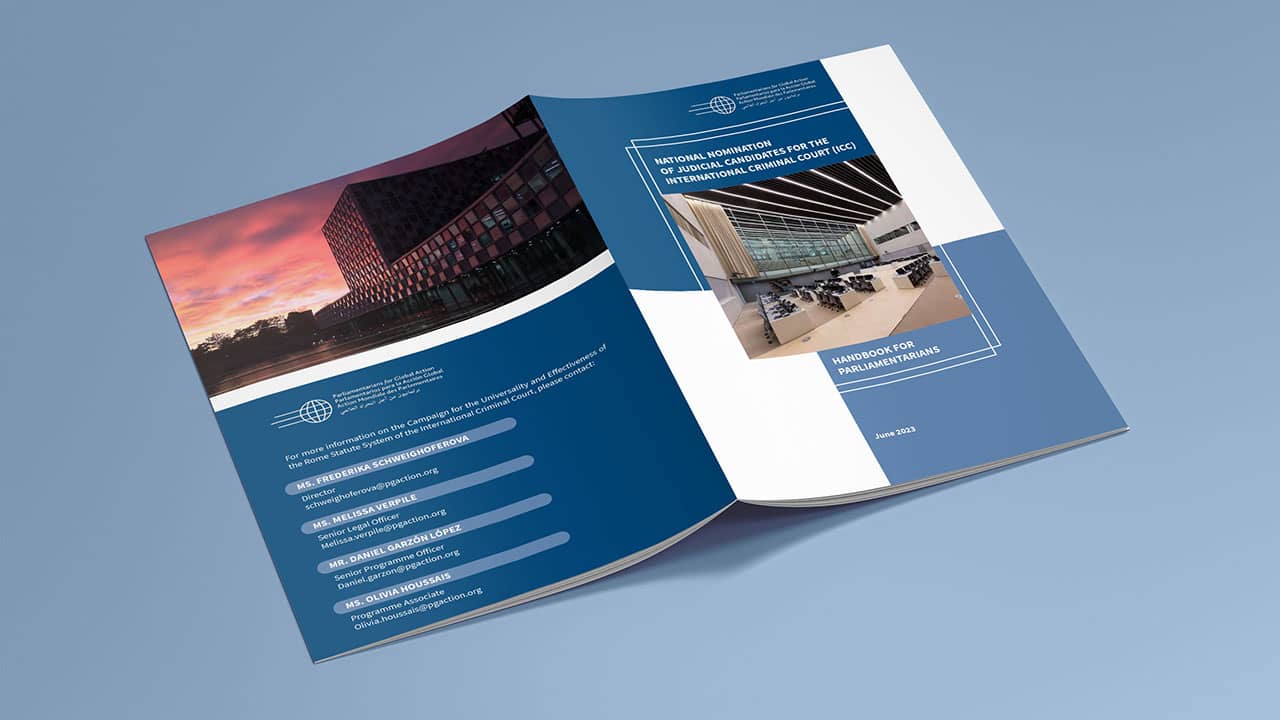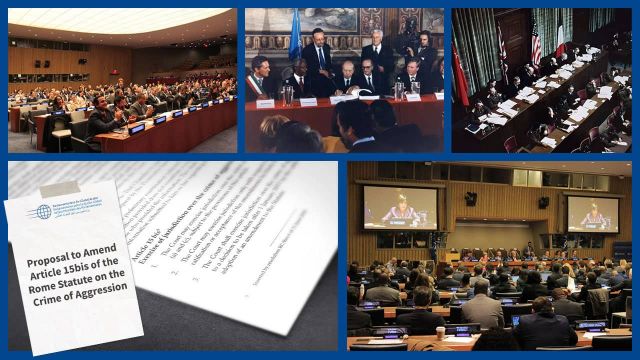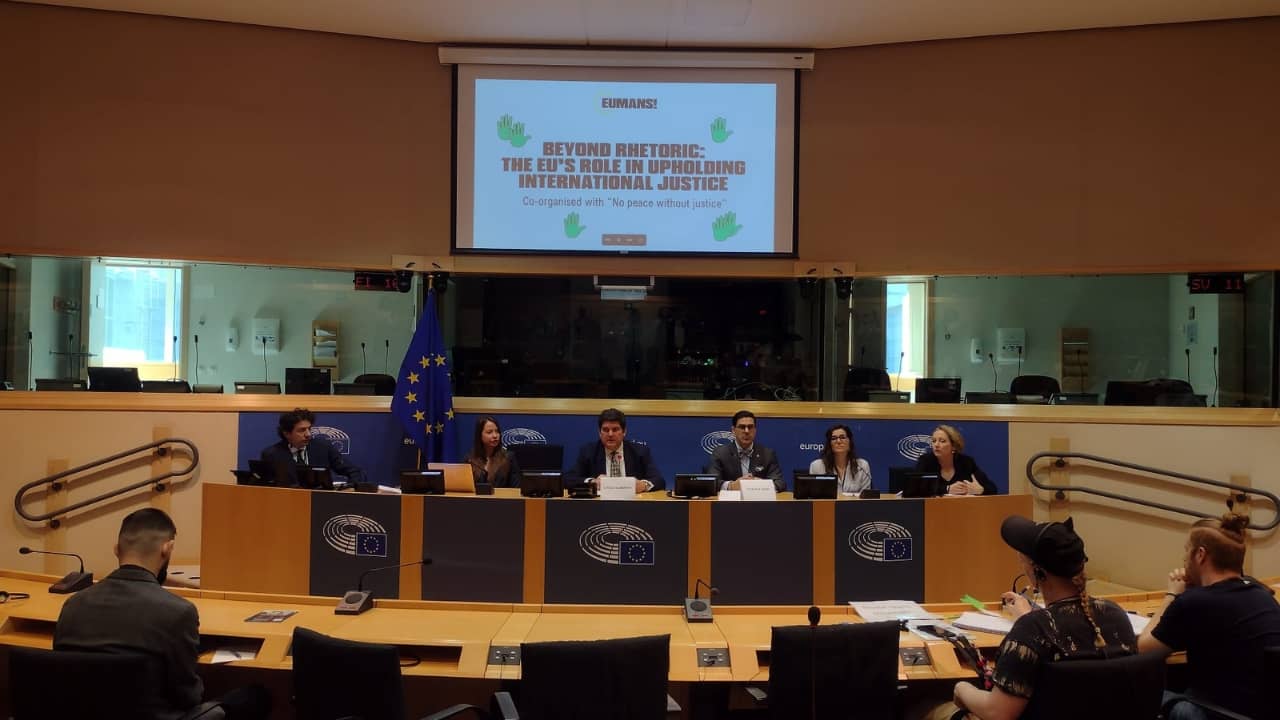New York/The Hague, 17 July 2023
Today, Parliamentarians for Global Action (PGA) commemorates the 25th Anniversary of the adoption of the Rome Statute of the International Criminal Court (ICC), a milestone in the collective pursuit of justice, accountability, and the Rule of Law. PGA, a global network of parliamentarians committed to promoting human rights, democracy, and the Rule of Law, reaffirms its unwavering support for the Rome Statute system and its objectives.
Since the establishment of the ICC, PGA has played a vital role in promoting the universality of the Rome Statute. We recognize the importance of its universal ratification, including all its amendments, to strengthen the ICC’s mandate and ensure its effectiveness. Only through the universal ratification/accession to the Rome Statute and all its amendments by all States does the jurisdiction of the Court - its power to investigate, prosecute and try a case - can extend to international crimes committed by any person in any place. We commend the efforts of States that have already ratified the Rome Statute and those already engaging in the process and urge those who have not yet done so to join the international community in this important commitment.
Fully implementing the Rome Statute is paramount. The Rome Statute system rests on the premise whereby the primary competence and authority to initiate investigations of international crimes lies with the States’ national jurisdictions. States have an obligation to contribute to the global fight against impunity. This can only be achieved through national legislation that, at a minimum, incorporates the definition of the core crimes, general principles of law, and cooperation procedures with the ICC. Effective implementing legislation enables States to try the gravest crimes domestically in compliance with international standards but also increases legal certainty and reinforces States’ domestic legal framework.
PGA continues calling for increased State cooperation, for without it, the Court cannot carry out its mandate effectively. States have long recognized the importance of effective and efficient trials and due process, the rights of the defense and other parties and participants, and the cost of trials. These cannot be achieved without domestic legislation implementing provisions on cooperation with the ICC, enabling States to swiftly execute the arrest warrants, decisions, and request for assistance issued by the Court.
Even more, the four ad hoc cooperation agreements on the protection of victims and witnesses, enforcement of sentences, interim release, and release of acquitted persons allow for a more vigorous and solid framework for collaboration with the Court. Consequently, increased cooperation between States and the ICC will strengthen the Court’s ability to investigate and prosecute individuals responsible for the most serious crimes of concern to the international community, i.e., crimes against humanity, genocide, war crimes, and the crime of aggression.
In addition, sufficient resources must be allocated to the Court. We urge States Parties and the international community to ensure that the ICC receives the necessary financial support. Adequate funding will aid the Court in performing its judicial and non-judicial activities, facilitate its outreach and awareness programs in situation countries, and provide reparations to victims and affected communities around the world through its Trust Fund for Victims.
The quality of the judges has fundamental importance to the performance, efficiency, and effectiveness of the ICC, which is at the heart of the long-term success of the Court and the integrity of the Rome Statute system. We, therefore, urge States Parties to improve their national nomination procedures for ICC judicial candidates and adopt good practices that ensure these processes are fair, transparent, merit-based, and free from political interference. A qualitative nomination process will enhance the independence of ICC judges and reinforce the Court’s credibility.
PGA stresses that in this first quarter century of the ICC’s existence, it is crucial to activate the Court’s jurisdiction over the crime of aggression to strengthen the norms established by the United Nations Charter, deter future acts of aggression, and ensure that those in leadership positions responsible for such crimes are held to account. A set of amendments to the Rome Statute, enabling the ICC to try perpretators from a non-party State if they committed the crime of aggression on a territory of a State Party which has accepted the jurisdiction on the crime of aggression, will be a significant step in recognizing and addressing the devastating consequences of aggression, the immense suffering caused to the victim population, and its threat to international peace and security and a manifest violation of the UN Charter.
The ICC has emerged as a beacon of hope and an indispensable institution. At this critical juncture, with increasing threats to the ICC, its personnel, civil society actors, and human rights defenders, the Court needs more support in the face of escalating atrocities and crimes committed worldwide. The ICC is a testament to the commitment to justice and accountability and is a vital deterrent: Those responsible for the most heinous crimes will not go unpunished.
As we commemorate this 25th Anniversary, let us renew our resolve to strengthen the ICC, support its work, and ensure that it continues playing a crucial role in delivering justice for victims of international crimes.







